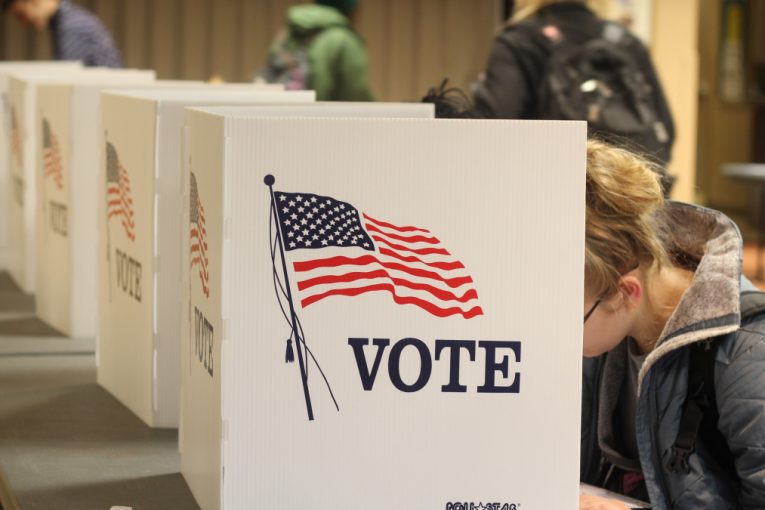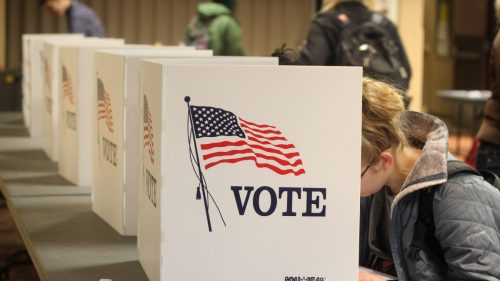

By Emily Saroyan and Vaiva Utaraite
CHAPEL HILL, NC – The Prosecutors and Politics Project here at the University of North Carolina at Chapel Hill closely examined what information voters could obtain from media coverage about their local prosecutors in elections.
This pilot study looked at the 2020 election results from four different states and selected counties with differing populations; its goal was to determine whether voters had sufficient information to make informed decisions at the ballot regarding how prosecutors used their power.
“I don’t have a lot of confidence that voters have that information because there is some evidence that many Americans don’t even realize that their prosecutor is elected. If you don’t know the prosecutor is elected, then you probably don’t have a good sense of what is going on in their office,” said Carissa Hessick, the director of the Prosecutors and Politics Project.
The results of the study showed the overall quantity of coverage was “quite low.”
Three main factors affected how much media coverage someone received: the type of candidate, whether it was a contested election, and the population.
“The prosecutor with the most coverage was mentioned in more than 300 articles, and one incumbent prosecutor was mentioned in 0 articles, which is pretty remarkable,” stated Hessick, adding incumbents received a lot more attention than first-time runners.
“The average contested incumbent receives almost eight times more coverage than the average challenger, so that is significantly more coverage,” noted Hessick.
If there happened to be no incumbent running, there was more coverage for the individuals running for the open seat, the study found, and contested elections received a lot more media coverage compared to those who were running unopposed.
Hessick added, “We can’t say whether contested elections are drawing media coverage or if the office of prosecutor is getting more attention and raising awareness of the office, but the correlation is quite clear.”
Hessick said population size “is one of the biggest drivers of contested elections. The smaller the population, the less likely it is that a prosecutor election will have more than more candidate on the ballot,” resulting in less media coverage.
The content of the media coverage was also lacking in terms of information that would assist voters in making an informed decision, with most of it being “relatively cursory,” Hessick said, adding that “more than three-quarters of the articles that we found didn’t mention that there was an election that year at all.”
The articles that mentioned incumbents and the election failed to include any information about prosecutorial decision-making or the policies they held, while “nearly half of all articles about non-incumbent candidates didn’t mention their professional backgrounds or their platforms,” stated Hessick.
Hessick also said most coverage within an article is usually minor and about a particular crime, confirming only “11 percent of the articles we read were primarily about the election,” influencing how viewers access this direct form of information when trying to learn more about their local prosecutors.
The tone of the coverage was generally neutral, except when it was correlated with any forms of population and elections which have been contested, said Hessick, noting more than three-quarters of stories were neutral in tone, as well as some positive coverage. Overall, negative coverage occurred in contested elections and in large media standpoints.
Fellow prosecutors and journalists joined the conversation, including Mark Dupree, an elected District Attorney in Kansas; Julie Gunnigle, a legal director in Arizona; George Joseph, a senior-city reporter; Will Knight, an Arizona attorney; and Ryan Thornburg, a journalism professor at the University of North Carolina.
Joseph confirms in-depth reporting is lacking because the common journalistic opinion is rushed, since many narratives must be reported by the end of the day. This, combined with “economy of reporting” creates a rushed narrative for readers, indicating the lack of positive coverage for prosecutors.
Joseph discussed how these challenges of negative perceptions in media can be overcome by having well-resourced newsrooms to grow the potential for in-depth reporting, and news reporting can thrive collaboratively with advocacy organizations and progressive campaigns to depict the current state of media coverage for prosecutors and their elections.




